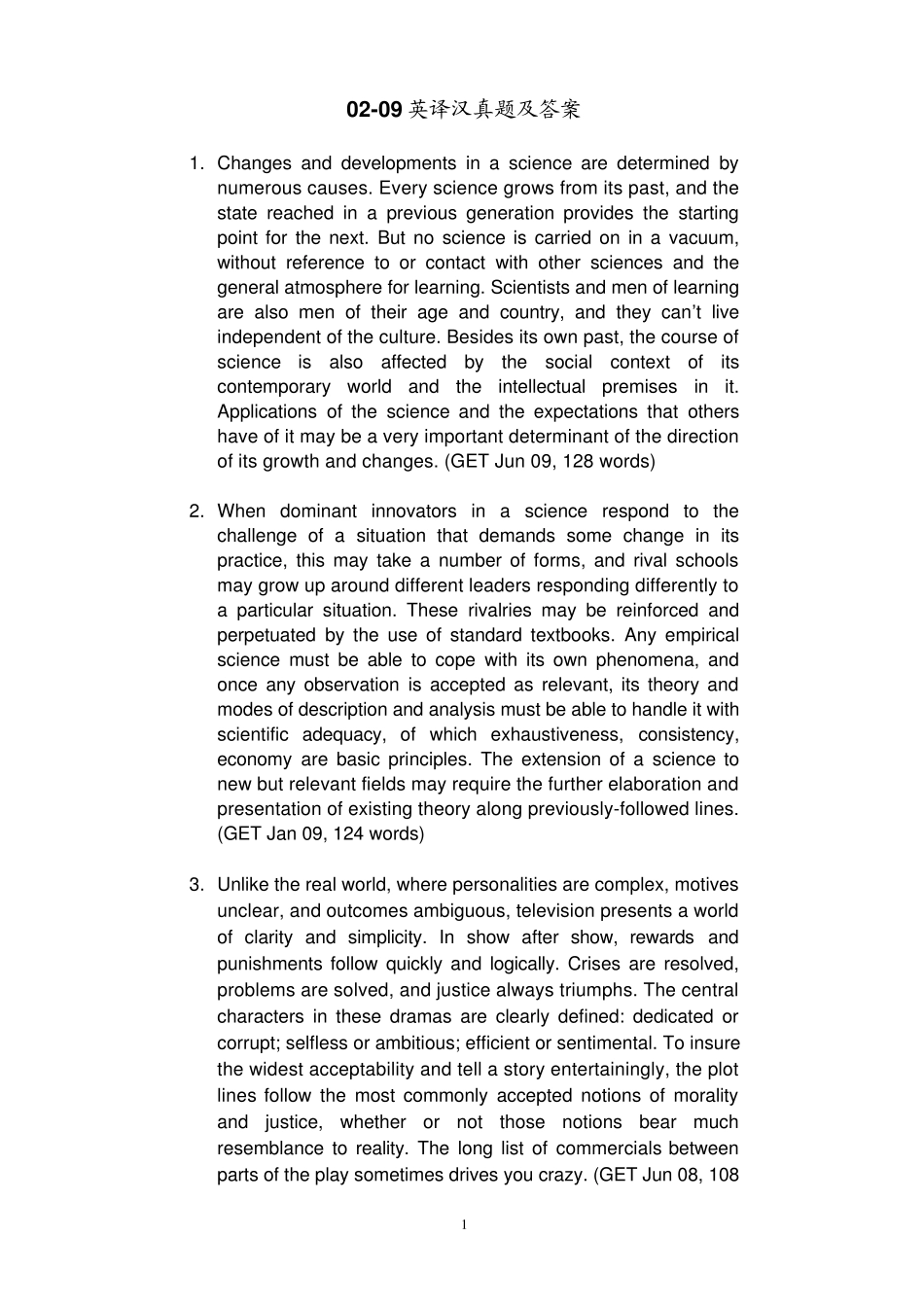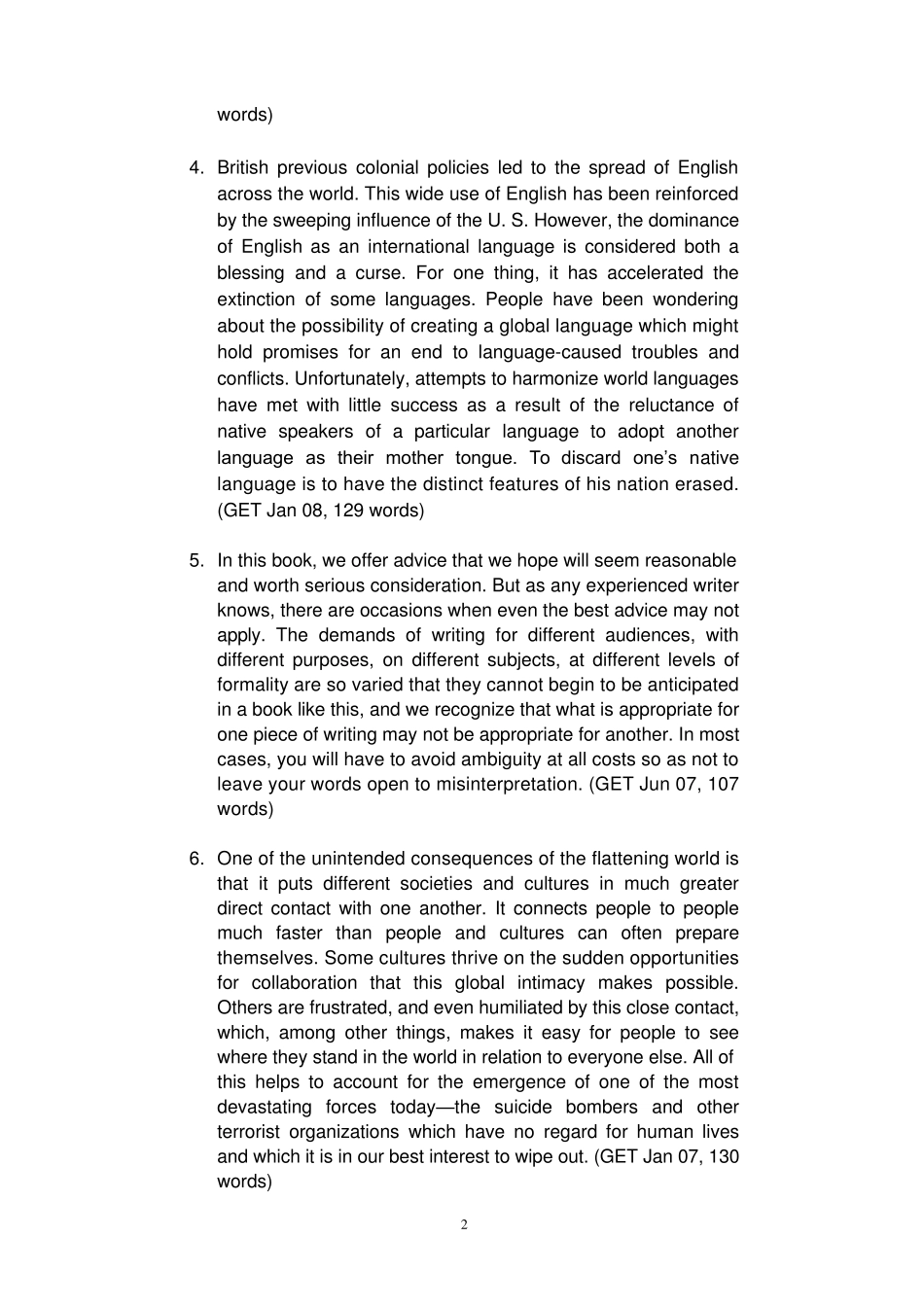1 0 2 -0 9 英译汉真题及答案 1. Changes and developments in a science are determined by numerous causes. Every science grows from its past, and the state reached in a previous generation provides the starting point for the next. But no science is carried on in a vacuum, without reference to or contact with other sciences and the general atmosphere for learning. Scientists and men of learning are also men of their age and country, and they can’t live independent of the culture. Besides its own past, the course of science is also affected by the social context of its contemporary world and the intellectual premises in it. Applications of the science and the expectations that others have of it may be a very important determinant of the direction of its growth and changes. (GET Jun 09, 128 words) 2. When dominant innovators in a science respond to the challenge of a situation that demands some change in its practice, this may take a number of forms, and rival schools may grow up around different leaders responding differently to a particular situation. These rivalries may be reinforced and perpetuated by the use of standard textbooks. Any empirical science must be able to cope with its own phenomena, and once any observation is accepted as relevant, its theory and modes of description and analysis must be able to handle it with scientific adequacy, of which exhaustiveness, consistency, economy are basic principles. The extension of a science to new but relevant fields may require the further elaboration and presentation of existing theory along previously-followed lines. (GET Jan 09, 124 words) 3. Unlike the real world, where personalities are complex, motives unclear, and outcomes ambiguous...


